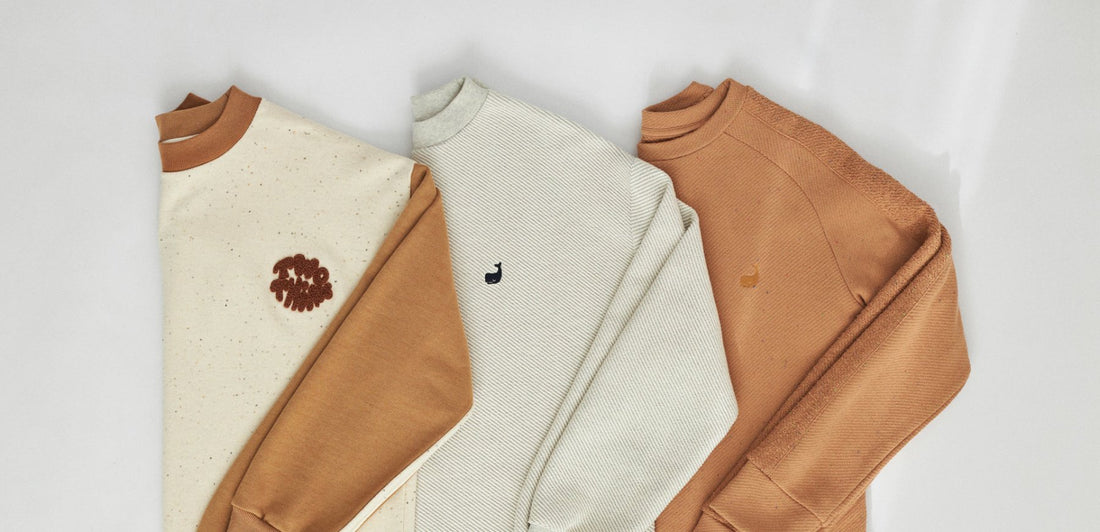The truth about organic cotton and cotton
Clothing doesn’t exactly grow on trees. But a lot of it is made from the same plant. Cotton is far and away the most popular natural fibre in the world. It is versatile, comfortable and breathable. Yet these days cotton is known less for its soft feeling and cloud-like appearance than for its ugly impact on the environment.
Cotton’s chemical romance
Cotton accounts for 4.71% of the world's pesticides and 10.24% of the world’s insecticides despite making up just 2.5% of arable land. Such agrochemicals are known to ruin soil and pollute waterways, leaving a high-impact on local ecosystems. In extreme cases, unregulated cotton production has turned enormous lakes into deserts.
That might be why cotton holds the title of being the “world’s dirtiest crop”.
So far, so terrifying… except there are alternatives to conventional cotton, one of which you’ve surely heard of. Organic cotton is taking the fashion world by storm. Here, we answer some of the most common questions about it.
After all, we use organic cotton in many of our own garments!
What makes cotton organic?
1. Purity of the Cotton
Cotton is organic when it involves none of the nasty stuff.
No hazardous pesticides.
No artificial fertilisers.
No Genetically Modified seeds.
As it is not artificially engineered or tainted by toxic chemical use, organic cotton is generally considered “purer” both as a plant and a fibre.
2. Farming
Organic cotton farming methods are nature-based. This approach fortifies biodiversity instead of destroying it. Organic cotton is also often grown on crop-rotation, giving soil the chance to rest and recover. Finally, organic cotton farmers tend to cultivate in rainfed regions, use better irrigation techniques, and have higher water content in soils, thus improving water management during farming. Source: NYTimes.
3. Weeding
According to Textile Exchange, organic cotton fields are typically weeded through “physical removal”, aka: by hand. They report that to kill-off weeds, organic cotton farmers “may (also) use materials that are derived from mineral, plant, or animal matter and do not undergo a synthetic process, such as garlic, hydrogen peroxide, neem oil, and vinegar.”
4. Manufacturing
Many factories are certified under the Global Organic Textile standard, which first ensures that no toxic inputs are used in the washing, dying, and processing of cotton. GOTS also help to maintain fair labour practices, by prohibiting Child Labour and demanding the adherence of internationally agreed labour norms.
By contrast, conventional cotton textiles do not need to meet specific social or environmental criteria.
Is organic cotton better than normal cotton?
The simple answer is: yes. It’s better for just about everyone involved - including you. In theory, the chemicals that are used in cotton production will be present in the final garment. These aren’t great for the skin and can cause allergic reactions. By wearing organic cotton, you’ll avoid this problem.
The absence of hazardous pesticides and artificial fertilisers is also beneficial to cotton-pickers, who are not at risk from the associated health risks (including asthma and cancer).
Another important factor is carbon footprint. When fossil-fuel pesticides and fertilisers are made, they release 3 potent greenhouse gases, including Carbon Dioxide and Methane. Organic cotton is estimated to reduce global warming potential by 46% versus normal cotton.
As organic cotton plays by nature’s rules, it’s vegan too!
However, more arable land is required to farm organic cotton than normal cotton. That could pose a problem in the future, with organic cotton fields eating into space now used for other important natural and agricultural systems. In this case, recycled cotton would be the most compelling alternative as it requires no land use at all!
Does organic cotton feel different?
Only in the sense that your skin shouldn’t feel irritated, and the quality should be higher. We often order organic cotton fabrics that have a good GSM (weight) rating, giving them a solid, sturdy feel.
Aside from that, organic cotton is just cotton - but cleaner!
This means it’s super soft, breathable, and easy to wear.
Does organic cotton shrink more than regular cotton?
There is actually little difference between the shrinking potential of conventional and organic cotton garments. However, because there are fewer additives (which may prevent shrinking) in organic cotton garments, they should be handled with a little extra care. That’s why we always recommend washing them at a maximum of 30 degrees. It’s also better not to tumble-dry organic cotton - or to do so at a cool temperature.
Is organic cotton cheaper?
Cotton is currently cheaper than organic cotton for both producers and consumers. But if we consider the benefits of the organic method - including richer soils and safer workers, that difference reflects the price of doing things the right way.
Organic cotton farms produce a lower yield than non-organic cotton, making it more expensive. As big fashion brands are now jumping on the bandwagon, demand is also growing faster than supply. While estimated production of organic cotton showed a 48% increase in 2020/21, it still makes up <1% of global cotton yield!
The TWOTHIRDS Take
Knowing it to be more sustainable than conventional cotton, we’ve been using organic cotton for a long time. You could say it’s in our DNA and our jeans. Now the only conventional cotton we use is actually deadstock - small amounts of surplus fabric that would otherwise sit in factories, unused.
Organic cotton made up 59% of the materials in our clothing in 2021. While that might sound pretty good, we want this figure to be lower in 2022. That’s because we would rather be less reliant on one fibre and there are already more sustainable alternatives to cotton in our inventory. These include recycled cotton and botanic fibres. However, if the contest is solely between conventional cotton and organic cotton, organic takes the win every time.
Check out some of our organic cotton styles by browsing our New In Men and Women.









